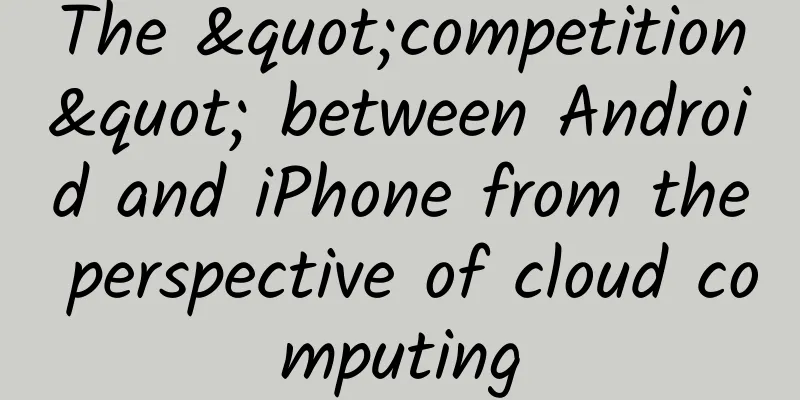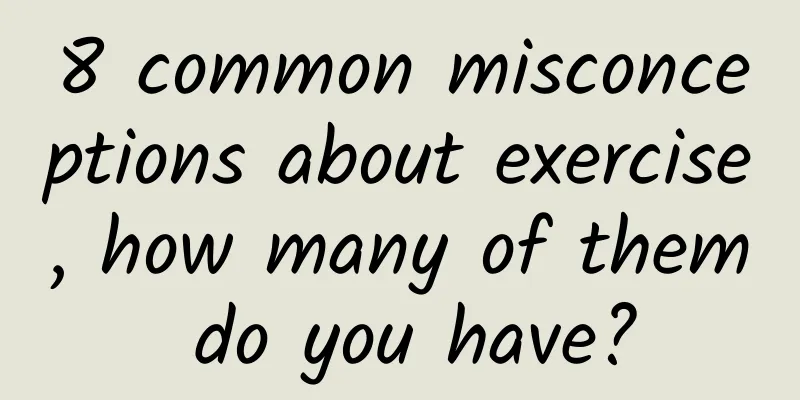The "competition" between Android and iPhone from the perspective of cloud computing

|
Dan Rowinski, a columnist for foreign media, recently wrote that Apple is the king of devices in the cloud era, and its difference from Google's Android is obvious. The new cloud improvements that Apple brought to iOS 8 and Mac OS X Yosemite are just a means to promote device sales. For Google, devices are just "dumb glass" and intelligence exists in the cloud. It innovates around cloud-based artificial intelligence and machine learning services. The following is the main content of the article: I recently upgraded from an iPad 2 to an iPad Air. At that time, I wanted the 16GB version, but the Apple clerk suggested that I buy the 32GB version. "Many people think 16GB is not enough," he said. This is very surprising to me. I have had my 16GB iPad 2 for 3 years and have never had a problem with running out of storage space. My music is stored in the cloud (via Spotify), and my movies and books are stored in the cloud (via Netflix, HBO GO, and Amazon). I rarely take photos with my iPad, mostly just screenshots. I have a lot of apps installed, but most of them don't take up a lot of space. So I don't need to buy the 32GB version. Everything I need is pushed to me from the cloud, not from the device itself. Some people call this ambient intelligence. There's something intriguing about the new cloud improvements Apple unveiled earlier this week at its Worldwide Developers Conference for its two new operating systems, Mac OS X Yosemite and iOS 8. Apple seems to have finally realized that computing lives in the cloud, not on the devices themselves. But think further about what Apple releases and how it works, and you'll find that the cloud isn't the primary feature of iOS and Mac OS X. For Apple, the cloud is a means to an end -- and that end is getting you to keep using and buying new Macs, iPhones, and iPads. Benedict Evans, an analyst at the well-known venture capital firm Andreessen Horowitz, said, "This is clearly to better compete with Google, which has taken a completely opposite strategy. For Google, the device is just a dumb piece of glass, and the intelligence exists in the cloud. For Apple, the cloud is just a dumb storage tool, and the device is where the intelligence is." Completely different strategic positioning As we all know, Android is the platform and iPhone is the product. Granted, there are some big names on the Android platform - Samsung, for example - but the mobile device market is not essentially a competition between device manufacturers. What we are talking about here is the "competition" between an operating system that is not limited to a specific manufacturer's devices and an iconic product from a large company. That competition reflects a radically different view of computing and how to best serve users. Let's start with Apple, a computer company that has always put its products first. Everything Apple does is always in service of its products. The Internet? That helps Apple sell computing devices. The cloud? That helps Apple sell computing devices. Taking photos? Making calls? Texting? Apps? Developers? All of these things help Apple sell computing devices. So it's in Apple's best interest to make those computing devices as efficient and attractive as possible, rather than just "dumb glass." Google, by contrast, has no intention of selling computing devices—at least not anymore. But it is laser-focused on computing services. Because computing, and the people who use those computing devices, generate something that is above all else to Google: information. With Android, Google's goal is to get everyone an Internet-connected computing device. More computing devices means more people generating information. Then Google can take that dumb glass and use it as a window into the world of information, selling ads against that information. As Evans puts it: "Apple is innovating around hardware and software integration, which is hard for Google to replicate. Google is innovating around cloud-based AI and machine learning services, which is also hard for Apple to replicate. This is not a 'this will bring those guys down' strategy - it reflects the fundamental characteristics of the two companies. Google thinks about improving the user experience by reducing page load time, while Apple thinks about improving the user experience by simplifying page scrolling." Serving their respective purposes What bothers me about iCloud in iOS 8 and Mac OS X Yosemite is that everything Apple does is designed to keep me buying its computing devices and using its platforms. For Apple, the cloud isn’t some fancy thing that provides ambient intelligence, but rather dumb storage and a link that provides continuity between devices. If ambient intelligence is a byproduct of the cloud, that’s fine—if it helps Apple sell more computing devices.Google is also serving its own purposes. But in the evolution of computing technology, creating "cloud-based artificial intelligence and machine learning services" seems to be more efficient and more altruistic than simply building a better iPhone. The ubiquitous intelligence brought by the cloud also means that there is no need for me to spend extra money to buy a 32GB iPad Air. The 16GB version of the "dumb device" that runs Apple's operating system and serves as a window to the world of information is enough for me. As a winner of Toutiao's Qingyun Plan and Baijiahao's Bai+ Plan, the 2019 Baidu Digital Author of the Year, the Baijiahao's Most Popular Author in the Technology Field, the 2019 Sogou Technology and Culture Author, and the 2021 Baijiahao Quarterly Influential Creator, he has won many awards, including the 2013 Sohu Best Industry Media Person, the 2015 China New Media Entrepreneurship Competition Beijing Third Place, the 2015 Guangmang Experience Award, the 2015 China New Media Entrepreneurship Competition Finals Third Place, and the 2018 Baidu Dynamic Annual Powerful Celebrity. |
<<: Home appliance giants are focusing on smart home: seizing a market worth hundreds of billions
>>: Today's headlines are about to be "killed by heat"
Recommend
How do educational and training institutions attract new customers online?
On May 27, I was invited by a teacher from an edu...
I have summarized 7 data-driven customer acquisition methods, all here!
In early March this year, Wang Xing mentioned in ...
Marine microbes that "eat" debris: What happens when fungi meet plastic?
Produced by | Science Popularization China Author...
Fan Zhihong shows you how to eat to get a good figure 21-day slimming recipes to easily eat to get a good figure
Fan Zhihong will show you how to eat to get a goo...
Lucid Group: Saudi Arabian factory to produce 155,000 electric vehicles per year in 2022
Lucid Group is steadily moving towards its overal...
Where does the aroma of tea come from, including the tender fragrance, the hair fragrance, and the pine smoke fragrance?
The fragrance of plum blossoms comes from the bit...
Congratulations! Achieved many firsts
The Shenzhou 15 astronaut crew recently used the ...
Stanford’s latest research: Be careful of “cliff-like aging” at 44 and 60 years old!
The original meaning of "衰" refers to a...
About the personal experience of a programmer taking a private job
[[142297]] I just graduated in 2013 and worked in...
Hong Raiders Value Season Ranch Ranch A Intensive Training Camp
Hong Raiders Value Season Ranch Ranch A Intensive...
Prepare for Double Eleven: Master this rhythm and write sales copy with high conversion rate!
The countdown to preparations for Double Eleven h...
Beware! These “social gadgets” carry hidden risks, and many children are using them!
You can add friends by tapping, chat, take photos...
Light and Shadow No. 7-Ae+C4D Business Advanced Case Course Master Class (First Period)
Light and Shadow No. 7-Ae+C4D Business Advanced C...
The six core elements of paid community operations!
The threshold for joining paid communities is get...









